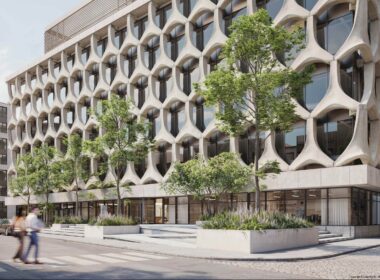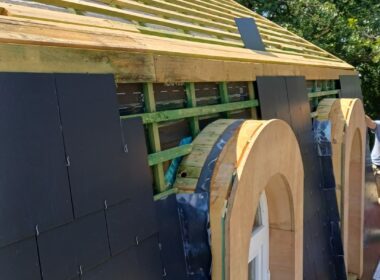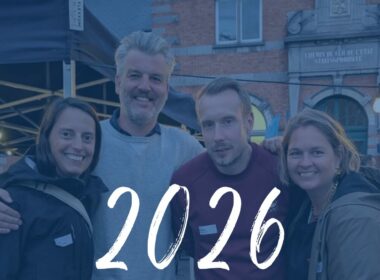In January 2018, Philippe Madec, a French architect/urban planner and two of his colleagues, the architect Dominique Gauzin-Müller and the engineer Alain Bornarel, wrote a manifesto entitled Manifesto for a happy frugality which lays out a programme of actions to be implemented when building and explains the true environmental impact of construction
During his last conference in Brussels organised by Be Sustainable, Philippe Madec explains that the information isn’t new. The information isn’t new. In 1987, when I was six years old, the World Commission on Environment and Development announced the irreversible impact of human activity on global warming at the Earth Summit in Nairobi. It would take until 2018, and COP24, for the building and construction sector to be identified as one of the main causes of the current situation.
The facts are there: the building sector is responsible for 40% of all greenhouse gas emissions. When the additional 20% for transport is added in (resulting from urban planning choices), it becomes clear that we builders are potentially responsible for 60% of all global emissions
By “builders” Philippe Madec means all construction and planning professionals.
Therefore, everyone within the ecobuild.brussels cluster has a role to play and must have a positive impact on the situation. In fact, it’s what binds us within the cluster.
But what does the term “frugality” have to do with this?
Philippe Madec reminds us that, from an etymological standpoint, “frugality” means “the harvest of the Earth’s fruit” as well as “sobriety, simplicity and moderation”.
The term invites us to do better with little or “better with less”.
People must take their inspiration from nature, which produces wisely and temperately.
Let’s put an end to the cement monoculture.
Let’s harvest what the earth provides us with, without damaging it, and let’s begin to use ancestral techniques (wood, earth) with our artisanal know-how as human beings.
The issue of rehabilitating the “already here” must also be at the heart of our approach.
New construction corresponds to approximately 1% of existing buildings each year.
This means that we must improve the 99% already here to hope to have a positive impact. The destruction of the “already here”, would only result in additional energy spending.
Let’s care for what is already here, rather than reworking it.
Let’s take care of what already exists. Let’s adapt it, expand it and renovate it.
This is an important part of the response to current challenges.
Bioclimatic design, building with wood, biosourced insulation, raw earth and low-tech are all principles which we know and which are already applied by cluster members. Note, however, that this approach is not yet totally integrated in the habits of all builders.
However, the movement is afoot. To date, the “Manifesto for a happy frugality” has nearly 13,000 members in 87 countries. Belgian currently has only 371 signatories…
So, with this article, I’m encouraging you to read the manifesto, to sign it if you agree with the programme, and I’m reminding you of our commitment as responsible builders.
Author: Cédric Callewaert, Architect, co-founder & partner at AUXAU atelier d’architecture
Read also: Estimation of requirements and circularity; The social economy unites partners with respect to sustainability; Biosourced insulation: a growing market for renovation companies; Technical facilities: a poor relation in the circular economy?



